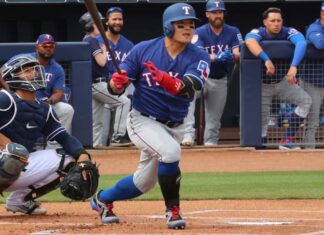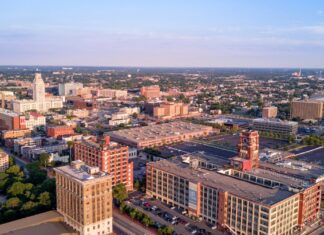
A father playing catch with his son for the first time – throwing the ball back and forth on a warm summer day. A cherished moment creating lifelong bonds and a love for the game of baseball.
Filling up the car with youngsters on a trip to Connie Mack Stadium and paying the 25-cent street tax for protection to neighborhood children around 20th and Lehigh, which is a lot better than $25 today.
Little league ballplayers from Palmyra, Cinnaminson and Riverton traveling in buses, walking into the stadium and seeing the most brilliant green, grass ballfield their young eyes had ever seen.
Watching in awe as Richie Allen, using a heavy bat that looked like a club, hits a ball deep into the dark night and over the Coca Cola sign in leftfield for a Philadelphia Phillies home run.
Handed down over the generations, baseball has been a part of the nation’s spirit and soul dating back to the end of the Civil War. Walking into the National Baseball Hall of Fame and Museum in Cooperstown, N.Y., visitors sense the majesty and grandeur of the game.
On the second and third floors are displays featuring Babe Ruth, Hank Aaron, the All American Women’s Baseball League formed during World War II, and the awesome exploits of ballplayers in the Negro Leagues who were banned from playing Major League Baseball until Jackie Robinson trotted out onto the field with the Brooklyn Dodgers in 1947.
The real magic takes over when entering the Plaque Gallery on the first floor, where bronze likenesses of the greatest players of all timeline the majestic oak walls of the hallowed hall.
On the back center wall are the first five Hall of Famers representing the Class of 1936 – Ty Cobb, Walter Johnson, Christy Mathewson, Babe Ruth and Honus Wagner.
After 20 more members were added to the Hall of Fame in the elections by baseball sportswriters in 1937, 1938 and 1939, the first induction ceremony was held on June 12, 1939.
For South Jersey fans of the Phillies and Athletics walking around the gallery, there was true delight in finding the plaques of beloved ballplayers.
They included Steve Carlton of the Phillies and Robert Moses “Lefty” Grove of the A’s, two of the three best left-handed pitchers ever. The other was Warren Spahn of the Milwaukee Braves, who is also enshrined in the Hall of Fame.
Carlton won two games, including the clincher, when the Phillies won their first-ever World Series Championship in 1980 over the Kansas City Royals after nearly 90 years of never winning the title.
The MVP of the series was Hall of Famer Michael Jack Schmidt, the Phillies all-time leader with 548 home runs and one of the best third basemen in baseball history.
Other Phillies included Richie Ashburn, one of the 1950 Whiz Kids and a longtime broadcaster; Jim Bunning, who pitched a perfect game in 1964 against the New York Mets; and Ed Delahanty, who led the league with a .406 batting average in 1899.
Youngsters visiting Connie Mack stadium in the 1960s heard whispers from the dads and grandfathers about the greatness of the Philadelphia Athletics, who won the World Series in 1929 and 1930 against “Murderers Row,” a group of New York Yankees with names like Babe Ruth and Lou Gehrig.
With Lefty Grove leading the pitching staff of the powerful As, the offense was propelled by two more Hall of Famers, catcher Mickey Cochrane and slugger Jimmy Foxx, who hit 534 home runs in his career.
Seeing those bronze plaques was a fantastic experience, as baseball lore and legend came to life at the renowned home of baseball history in Cooperstown, New York.
And, it reminded visitors of that first catch with dad.
Reporter’s note: Dedicated to Albert J. Countryman Sr.









